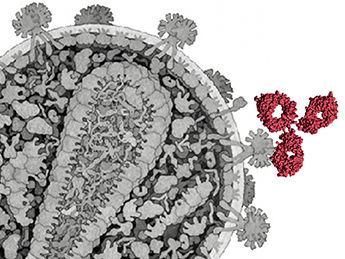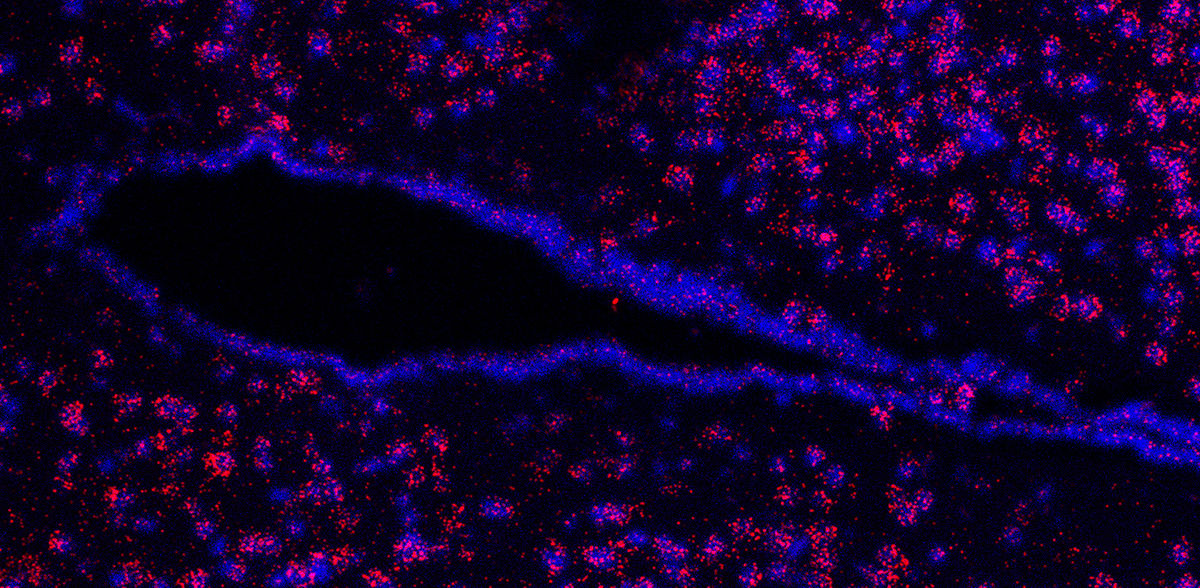New regulator of eating behaviour identified
New potential approach to treating obesity
The rapidly escalating prevalence of overweight and obesity poses a significant medical challenge worldwide. In addition to people’s changing lifestyles, genetic factors also play a key role in the development of obesity. Scientists at Leipzig University and Heinrich Heine University Düsseldorf have now identified a new regulator of eating behaviour. The findings have been published in the Nature journal Signal Transduction and Targeted Therapy.
“Our research underscores our incomplete understanding of the factors governing food intake. It also reveals the potential involvement of previously overlooked receptors,” says Dr Doreen Thor, lead author of the study and scientist at the Faculty of Medicine at Leipzig University. The newly identified receptor, latrophilin 1, has primarily been studied for its functions in the brain such as synapse formation and development, but not for its role in controlling food intake. It is a G protein-coupled receptor and was so named because of its ability to bind to the neurotoxin latrotoxin. This toxin is produced by some spiders, including the Mediterranean black widow, and has the latrophilin 1 receptor as a key neuronal target structure.
In their studies, the research teams led by Dr Thor from Leipzig University and Professor Simone Prömel from Heinrich Heine University Düsseldorf show that the latrophilin 1 receptor is present in the regions of the brain that control eating behaviour as well as in adipose tissue. In the study, mice lacking the receptor showed increased food intake and reduced physical activity. Although the juveniles were initially of normal weight, they became significantly overweight over the course of a further four months. This in turn leads to the well-known comorbidities of obesity, such as fatty liver and diabetes mellitus.
In addition, the researchers identified a receptor variant of latrophilin 1 in the sequencing data from the Leipzig obesity cohort that occurred in one patient with overweight. Cell culture studies indicated this variant’s impaired functionality, suggesting that the receptor may play a role in the development of obesity not only in animal models, but also in humans.
“The results provide a new approach to understanding the regulation of food intake and the development of obesity,” says Professor Simone Prömel, another corresponding author of the paper. Future studies in the participating research groups at the universities in Leipzig and Düsseldorf will now clarify whether the receptor can serve as a potential pharmacological target for the regulation of food intake in obesity.
Original publication
André Nguyen Dietzsch, Hadi Al-Hasani, Joachim Altschmied, Katharina Bottermann, Jana Brendler, Judith Haendeler, Susanne Horn, Isabell Kaczmarek, Antje Körner, Kerstin Krause, Kathrin Landgraf, Diana Le Duc et al.; "Dysfunction of the adhesion G protein-coupled receptor latrophilin 1 (ADGRL1/LPHN1) increases the risk of obesity"; Signal Transduction and Targeted Therapy, Volume 9, 2024-4-26
Most read news
Original publication
André Nguyen Dietzsch, Hadi Al-Hasani, Joachim Altschmied, Katharina Bottermann, Jana Brendler, Judith Haendeler, Susanne Horn, Isabell Kaczmarek, Antje Körner, Kerstin Krause, Kathrin Landgraf, Diana Le Duc et al.; "Dysfunction of the adhesion G protein-coupled receptor latrophilin 1 (ADGRL1/LPHN1) increases the risk of obesity"; Signal Transduction and Targeted Therapy, Volume 9, 2024-4-26
Topics
Organizations
Other news from the department science

Get the life science industry in your inbox
By submitting this form you agree that LUMITOS AG will send you the newsletter(s) selected above by email. Your data will not be passed on to third parties. Your data will be stored and processed in accordance with our data protection regulations. LUMITOS may contact you by email for the purpose of advertising or market and opinion surveys. You can revoke your consent at any time without giving reasons to LUMITOS AG, Ernst-Augustin-Str. 2, 12489 Berlin, Germany or by e-mail at revoke@lumitos.com with effect for the future. In addition, each email contains a link to unsubscribe from the corresponding newsletter.
Most read news
More news from our other portals
Last viewed contents

Broadly neutralizing HIV antibodies pave the way for vaccine
Kniest_dysplasia























































